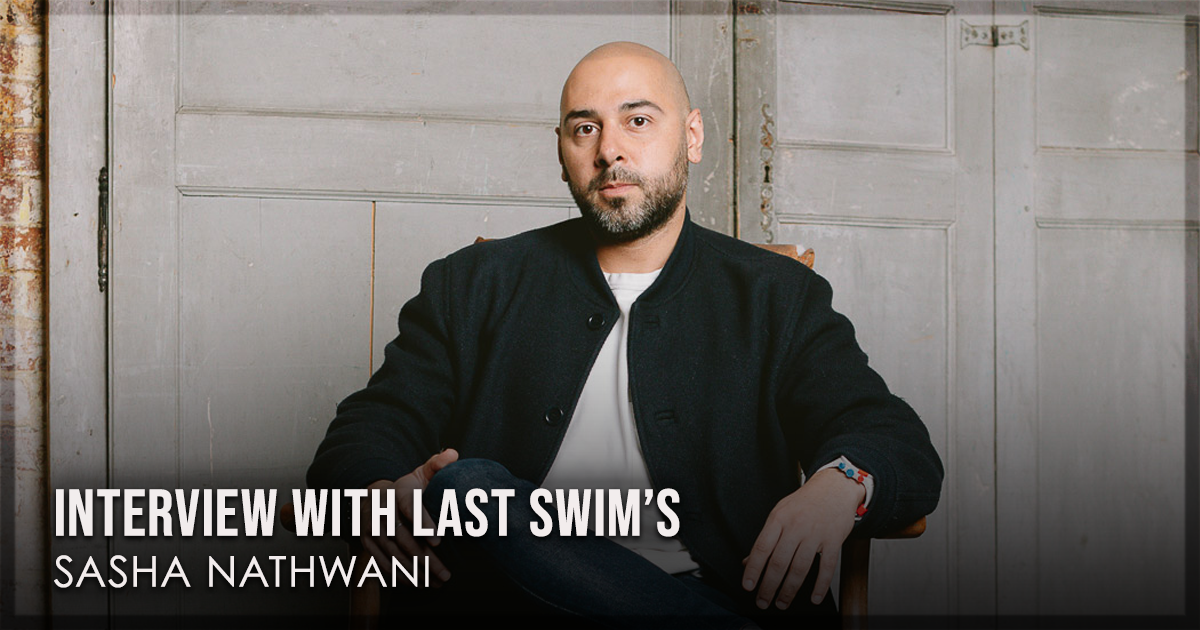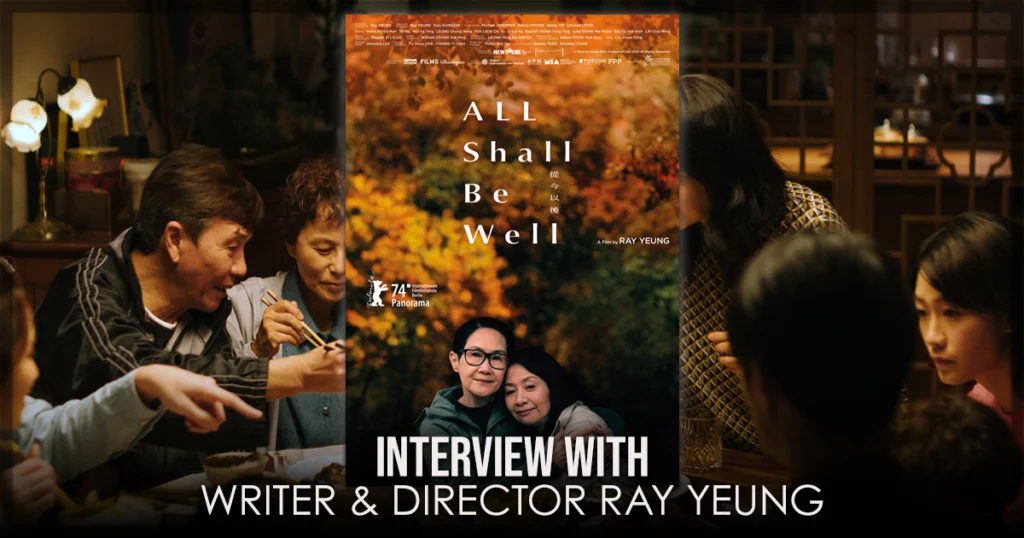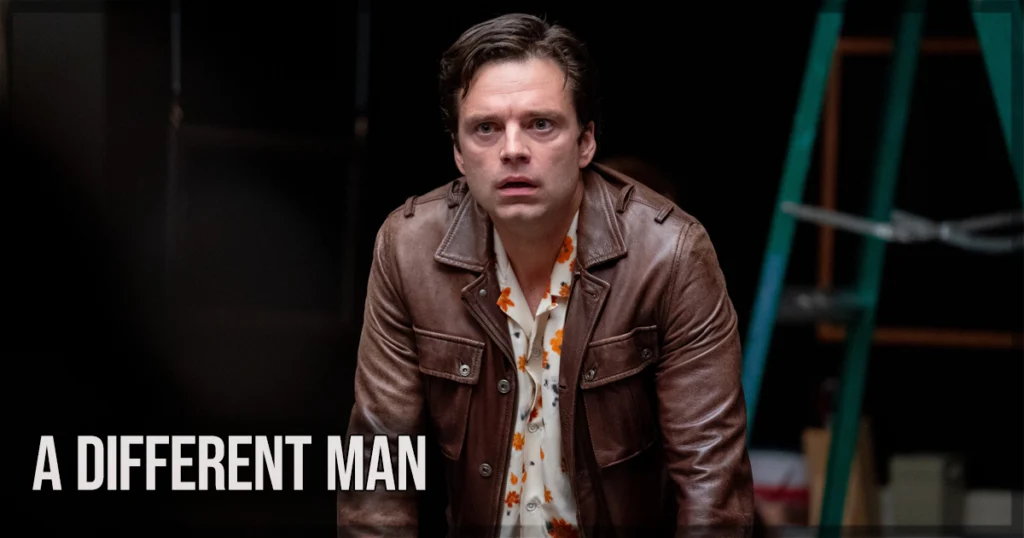Sasha Nathwani’s brilliant coming-of-age film Last Swim is set in London during the sweaty swing of summer, as young astrophysics enthusiast Ziba (Deba Hekmat) has her eye set on experiencing a meteor shower in person. Last Swim chronicles a day with Ziba and her friends as they celebrate their A-level results amongst their fading youth.
Unbeknownst to her friends Tara, Shea, and Murph (respectively: Lydia Fleming, Solly McLeod, Jay Lycurgo) and the newly anointed member of their group Malcolm (Denzel Baidoo), Ziba is hiding a secret illness. While her carefully planned itinerary of Falafel and shrooms that she creates soon loses structure, the journey is one of sweet melancholia. The film swirls with a sense of unrestrained and unflinching beauty and the joy and heartbreak of being a teenager, where the burden of expectation is placed upon the youth by parental figures. Last Swim finds pathos in those fleeting connections made within your teenage years.
Last Swim took home the Crystal Bear for Best Film in the Generation category at the Berlin Film Festival in 2024. Prior to this award, film critic Connor Lightbody sat down with Sasha Nathwani to discuss setting a film in a London Summer, the films that inspired Last Swim, finding the gem that is Deba Hekmat, and working alongside producer and co-writer Helen Simmons (Hoard) on the script.
The Interview with Last Swim co-writer & director Sasha Nathwani
[Editor’s note: This interview has been lightly edited for clarity.]
Connor Lightbody: First of all, welcome to Berlin.
Sasha Nathwani: Thanks Connor.
Connor Lightbody: Is this your first time here or have you been before?
Sasha Nathwani: No, I’ve been here a few times, but it’s my first time at the Berlinale.
Connor Lightbody: A big step getting it taken into Berlin for your first feature.
Sasha Nathwani: I’m blessed.
Connor Lightbody: What are the feelings? Nervous? Is it all just very exciting?
Sasha Nathwani: Yeah, it’s a combination of lots of things. A bit of nervousness, excitement, a bit of anxiety, but also just really chuffed that it’s going to have life. I’m very conscious of the fact that films get made every year and don’t necessarily find their audience. It’s opening Generation. That’s a huge honor. It’s sold out and sell out in a matter of seconds. So it seems like there’s a real appetite to see the film. So I’m excited. This is the fun part. The film is very challenging to make and very gratifying, but difficult of course and this is the bonus. This is the bit where we can sit back a bit.
On the biggest challenges in making Last Swim
Connor Lightbody: You say shooting the film was challenging. What was the biggest challenges you had in the filmmaking process?
Sasha Nathwani: Well, it was a 21-day shoot schedule for a 105-page script, and some days the volume of pages [we had to shoot] was large, and you know, it is a day in the life. We were at the mercy of the weather gods when shooting in London. The weather there is very temperamental, but we were actually very fortunate. I really wanted to tap into the energy of London on a hot summer’s day, and I wanted to really feel the sun.
Sasha Nathwani: And of the 21 days, we had 18 days of directional sunlight, which has just never happens. It’s an ambitious film. There’s a lot of moving around in lots of locations, and sometimes we were shooting in uncontrolled locations. It was important to us that we felt that London energy, so I wanted to film on Haymarket. I wanted to film on Primrose Hill. I wanted to film on the Tube. We had permits to shoot in all those places, but a lot of the public locations we weren’t able to lock off, so we had to work around the infrastructure of whatever was happening on the street that day, and that was very chaotic.
Connor Lightbody: Did anything specific happen that was chaotic?
Sasha Nathwani: Yeah, I mean, we had a scene on Portobello Road and Goldman Road Falafel Shop, and there are cars driving by, people honking, people walking and talking. So just not being able to have a little bit of quiet before we started shooting. But interestingly, in the Primrose Hill scene where we had a lot of outside people interrupting us, the actors were so focused. They realized how there was time pressure on the scene. Sometimes the chaotic scenes, when I watched them back in the edit, they had a certain power and focus. So, it’s funny how the chaos of a filmmaking experience translates in a different way than when you’re shooting it.
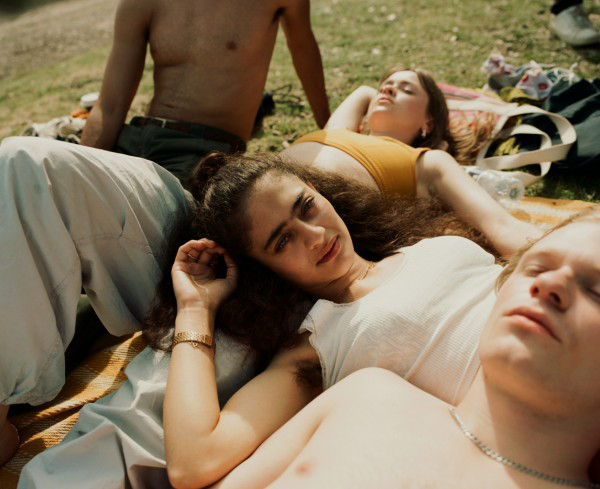
On the 105 page script for Last Swim
Connor Lightbody: The script was 105 pages, and your co-writer is-
Sasha Nathwani: Helen Simmons. She’s amazing.
Connor Lightbody: What was the process like on writing it?
Sasha Nathwani: I wrote the initial treatment, and then we just did a bit of back and forth. We treated the script like tennis. I would do a draft and she would do a draft. The reason that I brought her on board is because I felt it was really important to work with a female writer. I was very confident in how the boys spoke. I went to an all-boys school. I know what banter amongst guys sound like, but I didn’t have a huge amount of confidence in the way that Ziba and Tara communicate with one another, and the emotional journey that she goes on.
Sasha Nathwani: And Helen was incredible in terms of making sure that rang true and that there was a certain authenticity in the way that Ziba carried herself and the choices that she made and the way that she portrayed herself when she was with her friends. But also when she was in a smaller private space. There’s a lot of scenes in bathrooms where she lets the guard down, and it was important to contrast the way that she carries herself in those two types of environments. Helen is also a structuralist. My version of the story was very linear, and she was able to break things up in a way that worked in a conventional, but also thought-provoking three acts and then seven-act structure. So yeah, I was nervous about giving away my baby, but she’s fantastic and I’m looking forward to working with her again.
Connor Lightbody: Yeah, I saw her speak at Cambridge Film Festival about Hoard–
Sasha Nathwani: Which is another brilliant film.
Connor Lightbody: Oh, I loved Hoard. Luna Carmoon is very exciting.
Sasha Nathwani: A generational talent for sure.
On how they cast Deba Hekmat for Last Swim
Connor Lightbody: Speaking of generational talent, it’s what I called Deba Hekmat in my review of the film. Where do you find her? How did that come about? She’s a gem.
Sasha Nathwani: Yeah. She’s amazing, isn’t she? Hoard was her first film. She had a supporting role in that, but this is very different. The character here is very different. I worked with her when she was first coming through. She has a very unique face and is actually known first and foremost as model, so she’s done a lot of advertising work. I worked with her on a music video, and she just had a very unique energy, but also a beautiful power in her expressions.
Connor Lightbody: Yeah, she’s really striking.
Sasha Nathwani: Striking, but very instinctual. She hasn’t had any formal training as an actor. We auditioned all the British Iranian actors in London, and she smashed her audition. I really wanted to find actors who are as close to the character ages as possible. It really bothers me in films about young people, particularly American films, teenage films, high school films, where you get 30-year-olds playing 18-year-olds at school. She was twenty when we shot the film.
Sasha Nathwani: For a young person, she’s also lived a really amazing life. She came to Britain as a Kurdish refugee. She’s moved around a lot. She’s experienced all kinds of family upheaval, and when she had to go to an emotional place, she had a lot of life experience to draw from. I found that even though she wasn’t classically trained, that’s the thing that you cannot teach, that you cannot learn. You need to have that intrinsically inside you and then it was really about supporting her through the other parts of the process. The cast were really amazing there. They were very mutually supportive, and they would pull and push each other, and they would learn from each other as well. But yeah, I’m really pleased that you were moved by her performance because if that didn’t work, the film would’ve fallen.
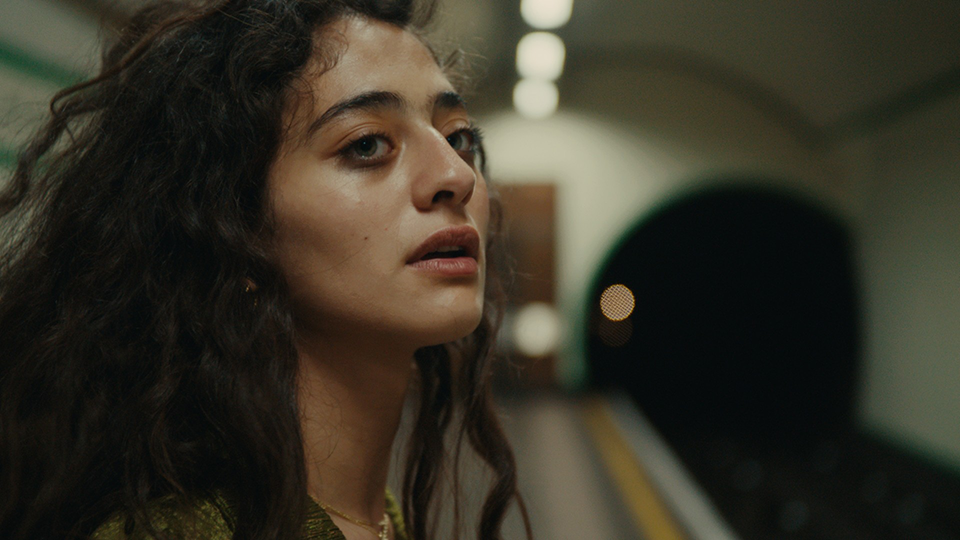
On achieving the banter between the friends in the film and how it boils down to generations
Connor Lightbody: You mentioned the friends. They have really good, electric chemistry. The banter between them all is great. How did you achieve that?
Sasha Nathwani: We were supposed to shoot in the summer of 2022, but we didn’t get our financing until the very end of the summer, at which point it was too late even though we were fully cast by then. We ended up shooting in the spring/summer of 2023. It meant that they were fully cast nine months before principal photography, which was great because it meant I had the time to start playing around with them in ones and twos, and twos and threes. Christmas of 2022, we did a full table read, and then we had 10 days of rehearsing before principal photography, and we did a lot of exercises. So they knew a huge amount about their characters and I think that really helped.
Sasha Nathwani: A few people have commented asking whether they were friends in real life, such is their chemistry and that’s a lovely thing to hear because I think that means that the characters feel like they are real people, and we just walked up with a camera and kind of shot them do thing. They’re all beautiful humans in so many different ways. The film is made by millennials, but it’s about Gen Z. I guess the main differences between millennials and Gen Z, I think, are millennials come from the kind of school of hard knocks. No matter how hard things get, keep your head down, keep moving forwards, and that’s not necessarily a good thing. We were maybe taught to believe that it is.
Sasha Nathwani: Gen Z are mutually supportive, much more sensitive, much more considerate. They really want to stand up for what’s right. They won’t tolerate any kind of circumstances that impinges on their personal space or their belief systems. But more than anything, they support each other, and they care about each other and they’re affectionate to one another. You see it in the film. They can pose questions to Ziba about whether she’s okay, because obviously you never do it directly, but they do it in the way that only young people do. And it was important to document that.
Sasha Nathwani: And I love, particularly in the two-hander with Murph and Ziba, they’re recounting a story about going to the zoo, and Murph just asks her out of the blue, “Are you good yet?”. They’re not facing each other and Ziba lies, as she does for most of the story until the very end. And that’s probably one of my favorite scenes, because there’s something special about young people checking in on other young people. I think it’s that sensitivity that probably makes people think that there’s a naturalness about the dynamic and the chemistry.
On Nathwani’s favorite shot in Last Swim and how it gives London color
Connor Lightbody: Yeah, there is a real sensitivity to the whole film. Do you have a favorite shot in your film?
Sasha Nathwani: There’s a Jamie XX track in the film, and it’s when they’re driving to Hampstead Heath. There’s an aerial shot of London basking in the beautiful sun, and the shot drops with the beat coming in. I get really frustrated with how monochromatic London can look in British film and I think in the summer, London has so much character and energy and flavor, and more importantly color. When the sun’s shining, London looks completely different, and it completely throws out the kind of reputation that London has of being a gray, rainy, overcast city. We see it a lot in films about New York. Those kind of quintessential skyline shots. You rarely see it in London. So, it was nice to take a little bit of my favorite influences and drop it into a story about Young Londoners.
Connor Lightbody: My favorite shot was the closeup of Deba’s eye and the meteor strike. I just marveled at it for about 10-15 seconds after
Sasha Nathwani: Oh, beautiful shot. I’m so glad that resonated.
On Federico Albanese’s score
Connor Lightbody: I want to talk about Federico Albanese’s score that just tinkled away throughout. It was really affecting, and it really added to the emotional wavelength of it all. What was the process there?
Sasha Nathwani: He was the first person attached to the project. He was attached to the project when we were writing, because we were listening to his music while we were writing. He lived in here in Berlin at the time. I spoke to him and we hit it off. I knew that we had the same tastes. He had never scored a film at that point, but we just kept talking. And then prior to shooting, it was his idea for me to come and spend some time with him in the studio.
Sasha Nathwani: I told him about the scenes in which I wanted music [on set] and he would just start playing in his studio. We recorded everything, and then I played that music on set. That was really helpful because it created a certain atmosphere for the actors, mainly for the emotional scenes, for the scenes where something dramatic is happening. Particularly with Ziba and her health. So we had a fair amount composed prior to shooting. We put everything to picture, and then he refined the music. I’m happy that you like the music.
Sasha Nathwani: The way that music is being used in film has really evolved a huge amount in the last especially… I’d say in the last 10 years, even the last one or two years. I didn’t want the music to be present in the sense that I didn’t want the cue points, the in points and the out points, to be really obvious. I wasn’t like, “This is an emotional moment.”
Sasha Nathwani: He composed so much more music than what’s actually in the film. Then we started taking things out, taking stems out, and then we just tried to bed in the music on a very long fade, so you don’t necessarily feel the in point. It just slowly creeps up on you. He’s someone who I see myself collaborating with for a very long time, and it was a joy to work with him. And if you like the music, and I guess it means it worked.
On what films have inspired Nathwani’s career and Last Swim
Connor Lightbody: What films have inspired you in your career so far, and what films have inspired Last Swim specifically?
Sasha Nathwani: Oh God. Okay. It is a coming-of-age story, so when we were pitching the film, we spoke about Kids (1995) a lot as kind of a seminal film about young people. It doesn’t go anywhere near the kinds of places that Kids goes, but we kind of said it was like Kids but with heart and with sensitivity. A lot of films in New York were reference points. The way that Spike Lee shoots New York or Martin Scorsese or Oliver Stone. And then a lot of French cinema, but I guess mostly coming-of-age stories. Call Me By Your Name (2016) was a reference point for us. Baby Teeth (2019), Greta Gerwig’s film with Saoirse Ronan.
Connor Lightbody: Oh, Lady Bird.
Sasha Nathwani: Yes, Lady Bird. And the visual approach in things like Euphoria as well. I’m conscious that London is a bridge between Europe and America, and I think my influences have always been transatlantic. I went to film school in New York, mainly because my favorite filmmakers were New Yorkers. Spike Lee and Martin Scorsese and people like that. But I love the French New Wave. I love Italian neorealism. I guess it’s a combination of European influences and North American influences as well.
On if the film came from a personal place
Connor Lightbody: The film feels so incisive about how it feels to be a teenager and the whole melancholy of it all. It felt like it came from a very personal place. A very real place. If you feel comfortable, did it?
Sasha Nathwani: I mean, there’s a lot in there that’s real and there’s a lot of fiction in there as well. In terms of Ziba, she is basically a combination of my female cousins. I happen to have a lot of cousins in Iran. Whenever my brother and I would go and visit them, they always gave us a long list of things. They wanted us to bring magazines, CDs, DVDs, sweets, things that they couldn’t get in Iran. Growing up, I was very conscious of the fact that my brother and I were growing up in London and we were slackers at school.
Sasha Nathwani: Then I had all of these cousins in Iran and they all happened to be young women, and they were everything my brother and I were not. They were academically strong. They spoke two, if not three languages. They played a musical instrument. They had straight A’s at school. They helped out at home. So when we were crafting the character, we thought there’s a tragedy in the idea of a young British Iranian woman being part of a society where she can do all the things that she wouldn’t be able to do in Iran where there’s a gender apartheid taking place but on the eve of the rest of her life, she has her future snatched away.
Sasha Nathwani: I guess, yeah, that’s kind of where the inspiration for Ziba came from. Then the day that they have is a day that I think most young people who’ve grown up in London have had. On a hot summer’s day, I would just have a plan to meet that one mate. We’d meet in a park, because that’s what you do. You haven’t got any money when you’re a young person in London. It’s such an expensive city. You go sit in the park, you go meet another friend.
Sasha Nathwani: Maybe that other friend has a little bit of weed. He wants to go meet up with these girls on the other side of London. Your other friend just got his driver’s license. You bowl into the car. The music that you play in the car becomes a talking point. No one has any money. You’re scrounging pounds off one another to try and score some beers. So that was very much drawing on experience. The interactions with the mother are very much coming from a real place. I think the relationship that Iranians have with their mothers is very special.
Sasha Nathwani: It’s a combination of personal experience, but also when we were writing the script as well, we were writing it in the midst of the pandemic. So, it’s no coincidence that we’re telling the story about lost youth at a time where young people all over the world are having the seminal years of their lives snatched away. They can’t go to school, can’t go to university, can’t travel, can’t go to clubs. No opportunity for any kind of cultural or intellectual exchange. It’s a cocktail of all of those things.
On Denzel Baidoo’s performance in Last Swim
Connor Lightbody: Denzel Baidoo is amazing in this. He’s got those piercing eyes and that jawbone, and you can see why Deba is completely infatuated with him. I want to know specifically about the tiny look that he does back to Ziba before he crosses the road. Was that in the script? Was that direction or was that Denzel?
Sasha Nathwani: It wasn’t in the script but yeah, it was direction. There’s a lot of nonverbal communication happening between the two characters, particularly at that point. Sometimes it takes an outsider to spot that something’s not right. Of course, the four main friends have a lot of history, and he comes in as the outsider and he can sense that there’s something not quite right here and he’s naturally very observant, the character. At that point, we know that he’s caught onto something.
Sasha Nathwani: After the scene in the woods where he picks up her itinerary, he sees what’s written on it so he’s watching her in the corner of his eye in the scene on the tube platform, so that look, when he goes to get a drink, mainly for her, she’s the one that said she was thirsty, is all a little bit of nonverbal communication. And she looks at him back and she’s beginning to forgive him and she’s beginning to forget what happened. The look was a kind of veiled, “I’ve got you” kind of thing.
On if any darlings didn’t make it past the film’s edit
Connor Lightbody: Did you have any darlings that you had to kill in the edit?
Sasha Nathwani: Oh my God, so many. I mean, when have you ever asked that question to a director and they’ve said no. If they’ve said no-
Connor Lightbody: Surprisingly, lots.
Sasha Nathwani: Oh, really?
Connor Lightbody: I think it’s because they all want to sound like they’re in control.
Sasha Nathwani: Well, my editor (Stephen Dunne) and I, we had some difficult days in the edit because he really fought for what he thought what was right. That’s the thing that editors do. I’d say a good 10 pages of the script didn’t make it into the film, which I think made it a better film. Anything that we felt was indulgent and anything that was in there for the wrong reasons was cut. Like a beautiful shot or a beautiful scene or a beautiful piece of music that was integral to the process prior to making it but when we’ve got into the edit, there was no good reason to have it in there.
Sasha Nathwani: The film explores lots of dark themes. I don’t want to give anything away, but the way that we portray and communicate the darkness of what’s going on inside Ziba, we filmed lots of different scenarios around how we would communicate that. Those scenarios were some of my favorite things to shoot and things I was most excited about bringing into the film. But they felt like they were fetishizing the kind of delicate subject that we were dealing with, and that they didn’t really have a place in the film. That was a very difficult choice to make. So yeah, those are the darlings that we left on the edit room floor. Who knows? Maybe it’ll make it into the trailer, but we’ll see.
Connor Lightbody: Thank you so much, and for your film. Send my praise and affection to Deba too please.
Sasha Nathwani: Yeah, I will do. She’ll be really happy to know that. Thanks Connor
Last Swim recently screened at Berlinale.
You can learn more about the film, and about writer and director Sasha Nathwani at his official website.
You might also like…
‘All Shall Be Well’ Review: Yeung’s film is a rich and satisfying drama on acceptance (Berlinale)
‘A Different Man’ Movie Review: Schimberg’s Fascinating Metatextual Black Satire

